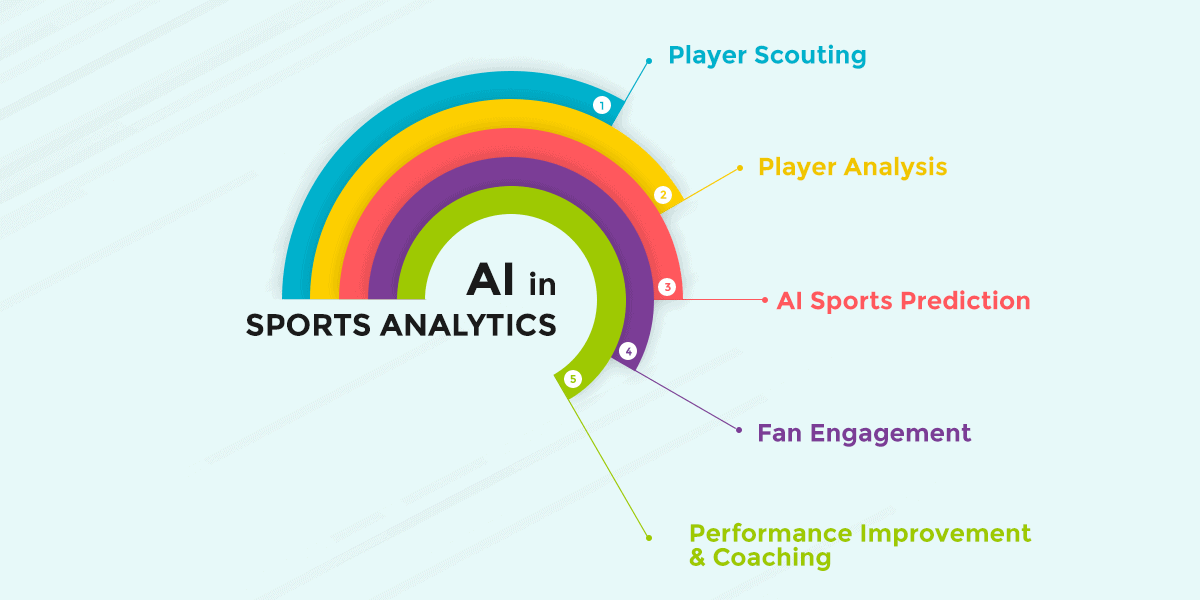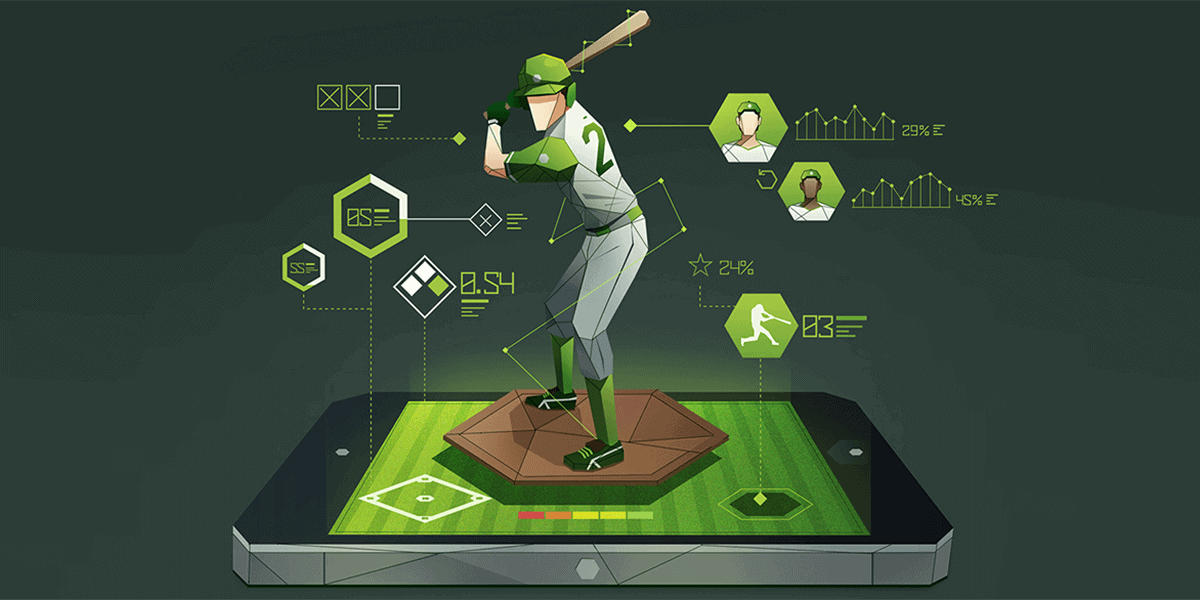Artificial intelligence (AI) has revolutionized the way human beings and machines interact with each other. From tablets and smartphones to wearable devices, AI continues to change the lives of people and the sports industry is no exception. AI sports analytics is anticipated to be a multibillion-dollar sector in near future. It comes as no surprise that AI is being implemented in various aspects of the sports industry as a huge volume of quantitative data is impossible to analyze manually.

AI Sports Analytics: The Present Scenario
Player Scouting
Artificial intelligence is being deployed by team owners to analyze the performance of players. AI-enabled analytics are used for identifying the right talent that they can bet their money on. In the sports industry, talent sourcing requires millions of dollars. Therefore, team owners want to ensure that they have made the right decision to scout a particular player. The use of artificial intelligence in player scouting is prevalent in every kind of sport from basketball and football to cricket.
Performance Improvement and Coaching
Proper understanding of players’ mental conditioning and physical preparedness is necessary for enhancing their skills. Effective coaching requires a detailed analysis of their strengths and weaknesses. AI sports analytics helps capture these crucial parameters. For instance, NEX technology utilizes machine learning and Computer Vision to track the skill-level of basketball players. It calculates chief performance metrics such as ball handling, release time, vertical jump, speed, progress over time, and shot accuracy.

Photo Credit: The Week
Similarly, AI is used for detecting shot placement in tennis. On the other hand, sensor-enabled bats are being used in cricket for measuring factors such as shot quality, point of impact, a twist on impact, and the ball speed. All this information is captured, analyzed, and made available in real-time! One can safely say that artificial intelligence is an expert insight provider in sports applications.
AI Sports Predictions
AI-powered sensors and machines analyze the sports matches to predict the outcome. With the help of machine learning, it is possible to predict the match results. One such application called Kick-off predicts future confrontations by using a model outcome for enormous data sets. Another example is that of Swarm AI technology where machines and humans analyze and forecast match results together.
Fan Engagement: The Power behind Sports Analytics
Gone are the days of a monopoly in the sports broadcast industry. There are plenty of online streaming services and television channels that compete with each other today. As a result, the dissemination of content witnessed a massive transformation in the past few years. Key stakeholders are in the race against time to provide the best archival material, the best stats, and behind the scenes footage to their viewers. All this has been made possible through artificial intelligence!
The Way Forward
There are several potential applications of AI in the sports industry such as automated video highlights and smart ticketing. For instance, IBM is developing a system that can generate AI-automated video highlights using cognitive computing abilities. The system was first tested during the Wimbledon tournament in 2017. The tech giant aims to escalate the processes which usually take hours when performed manually.
On the other hand, a soccer team that goes by the name of “The San Francisco Deltas” is introducing a smart ticketing technology through which fans will be able to switch their seats based on their interests and backgrounds.
Artificial intelligence in sports analytics is still lacking the full-scale implementation. There are various complexities associated with the rules and AI biases. With the help of neural learning, these problems can be solved and the sports industry will witness full-fledged integration of AI in analytics during this decade.

